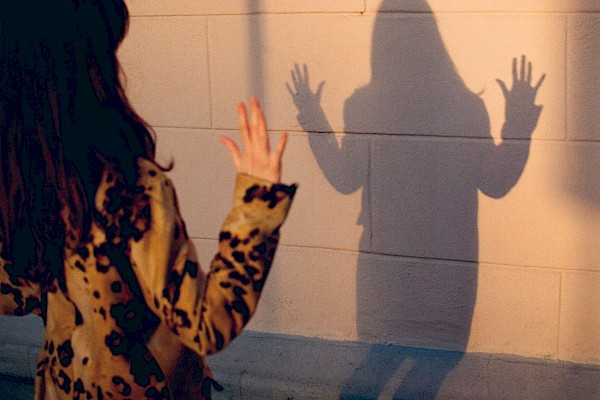Spring feelings
The birds are singing, the flowers and the trees are blooming in the most glorious colours, the air is beautifully scented and the first insects are buzzing joyfully. Nature awakes to new life. Spring has sprung! We humans, too, slowly wake up from our hibernation and spend more time outside in the fresh air. Do you also feel the new energy that the change in season brings with it? Are you bursting with new ideas, thirsty for action, and making a great many plans? Many of us associate spring with positive feelings. Some of us fall in love at this time and talk about butterflies in the stomach. Everything seems better. But what is behind these spring feelings, and what’s the matter when these feelings don’t appear and you feel listless and dejected? We get to the bottom of it in this blog post.
Where do these positive spring feelings come from?
After winter, which is rather humdrum in terms of scents and colours, spring brings a flood of new, stimulating beauty, and our brains attach certain feelings to different beautiful things. In this way, the scent of spring (e.g., fresh grass or flowers) may trigger positive feelings in us. Our mood improves and this has a beneficial effect on our psyche. Light has an even greater influence on our spirits – as the days lengthen, the concentration of the sleep hormone melatonin is reduced, and as a result, we wake up. At the same time, the concentrations of dopamine and serotonin – the two hormones that make us feel happier and more alive – increase.
So everybody should be OK in spring then?
Although spring feelings are predominantly positive, we may also experience many other emotions, such as moodiness, dejection and listlessness – to name just a few. It’s clear that spring is not purely positive for everyone. Unfortunately, right at the times when everything feels good or great, we often forget that some of our fellow human beings are also dealing with negative emotions. In fact, studies even show that the symptoms experienced by people with depression can be even more pronounced in spring. Why is that? When it’s actually winter that is mostly cold, wet and dreary, depresses our mood and negatively affects our wellbeing? This is true. But during winter it is easier for affected people to stay at home and bunker down, as many of their friends and family are doing the same. One of the things assumed here is that people who suffer from depression find that spring brings a stronger contrast between their illness and the impression that all the people around them are happy and joyful. They feel sad, unhappy and dejected while, all around them, new life is blossoming. In addition, in spring there is increased pressure from your surroundings to participate in social life again. For example, friends and family more frequently ask affected people to go out with them and do things. If you don’t suffer from this yourself, it can sometimes be difficult to understand. Sentences like “Go out, it will do you good” or “Just pull yourself together” should be avoided. If you know somebody who suffers from depression, show some understanding and try to give this person invitations and suggestions for meeting up or other things to do without putting pressure on them. And don’t take it personally when they say “no” yet again.
Important: if you feel tired and lacking in energy in the spring, that doesn’t automatically mean that you’re suffering from depression. It could also be what is called springtime lethargy.
Springtime lethargy or spring depression?
People who suffer from springtime lethargy present with symptoms such as fatigue, irritability, dizziness, lethargy, reduced performance, headaches and limb pain, weather sensitivity and low blood pressure. These symptoms cannot always easily be distinguished from depression. However, springtime lethargy will go away all by itself, within two weeks at most. It is estimated that every second adult needs to get over this seasonal fatigue before getting back on track again.
What causes springtime lethargy? It could be one of many things. Firstly, our bodies need to adjust to the new weather and light conditions. It gets warmer, the days lengthen and we are exposed to more daylight. Switching to the new conditions and getting used to them requires some time; it won’t happen overnight. While this happens, the body still has lots of the hormone melatonin, which makes us tired. Another explanation lies in the fact that our bodies and psyches need sufficient vitamin D, which we make using sunlight. Our vitamin D reserves are usually exhausted in spring and need first to be replenished. The good news is that you can counteract your springtime lethargy with the help of some simple tips.
Tips for springtime lethargy
- Exercise in the fresh air: go outside as much as you can, get on your bike or enjoy some sun on a walk. If you feel very tired, you might need to make an effort to push through, but it’s worth it. Because, if you do, the body’s serotonin production is stimulated, which makes us more awake and cheerful. What’s more, your circulation and metabolism will also be boosted, which is very beneficial.
- Sleep: when you are very tired, or even exhausted, you shouldn’t sleep for longer than usual. If you do, the result will be increased melatonin production, which will only increase your symptoms (fatigue). Moderation always makes sense when it comes to sleep – neither too much nor too little.
- Drink: an insufficient water intake can also leave you feeling ever more tired. So make sure that you drink enough water or other unsweetened drinks slowly, over the course of the day.
Where can I find help?
If you notice that your symptoms haven’t gone away, or have even got worse, and you maybe also feel desperate, it’s important to seek professional support. On our Help and advice page, you can find different services and points of contact offering you support for any situation in life.
References
Cho, C. H., & Lee, H. J. (2018). Why do mania and suicide occur most often in the spring? Psychiatry investigation, 15(3), 232. https://doi.org/10.30773/pi.2017.12.20
Oberberg Kliniken. (o.D.). Frühjahrsdepression: warum der Frühling manche Menschen krank macht und was dagegen hilft. https://www.oberbergkliniken.de/artikel/fruehjahrsdepression
Raether, T. (2019, 25 April). Frühling ist die grausamste Jahreszeit. Süddeutsche Zeitung Magazin. https://sz-magazin.sueddeutsche.de/gesundheit/depression-fruehling-gesundheit-87201
Schöne, L. (2018, 26 August). Die dunkelsten Tage. Tagblatt. https://www.tagblatt.ch/leben/suizid-gibt-es-heikle-termine-ld.1047300
Specker, M. (2022, 21 March). Was hilft gegen Frühlingsmüdigkeit? CSS Versicherung. https://www.css.ch/de/privatkunden/meine-gesundheit/koerper/wunderwerk-koerper/fruehlingsmuedigkeit.html
Wimmer, J. (2021, 15 September). Frühlingsgefühle: Das passiert im Körper, wenn wir verliebt sind. TK Magazin. https://www.tk.de/techniker/magazin/lifestyle/liebe-sex-partnerschaft/fruehlingsgefuehle-2030318?tkcm=ab
 subscribe to newsletter
subscribe to newsletter


